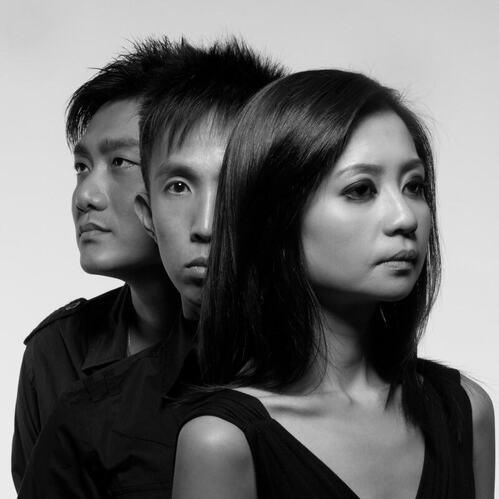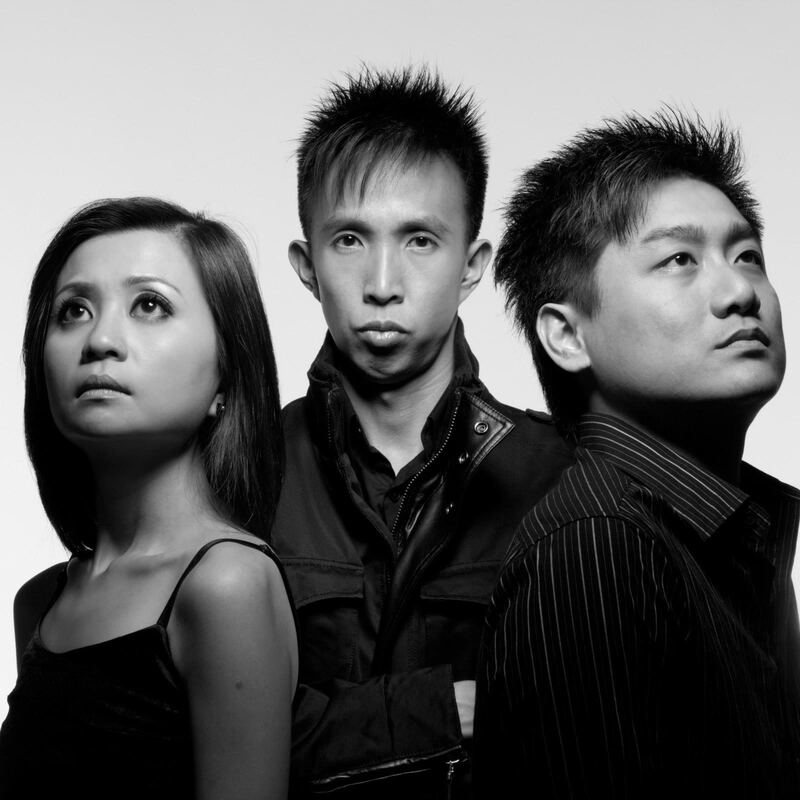
Lunarin Interview
Q: Can you talk about your history as a band?
A: We are a three-piece alternative rock band from Singapore. The three of us were classmates in secondary school in 1993, when we were impressionable, wide-eyed 15-year-olds. We became firm friends due to our common love for music. We were so inspired by the music at the time that we started a four-piece grunge band with another schoolmate in 1995. By 2003, we moved away from grunge and began exploring a darker progressive sound as a three-piece band in the form of Lunarin. Since then, we have all grown, gotten married and have kids. Still, the love of music keeps us going.
Looking back now, I am so grateful that we grew up in the ‘90s when there was so much music; the culture then was directly shaped by the music that was popular at the time and had such an influence on us growing up. I don’t think a musical movement like that will happen now.
Q: Your latest release is Songs of Love Lost & Isolation. How much of the influence comes music in Singapore versus other places?
A: I wouldn’t consider it Singapore music but Faye Wong has always been a great influence on us, particularly her vocal style, and she was so popular in Singapore back in the ‘90s that it really was a matter of time before we paid homage to her in one of our songs. At the same time, we grew up listening to ‘80s pop and ‘90s rock like Nine Inch Nails, Tori Amos, Skunk Anansie and Cocteau Twins, all of which were huge influences in this EP. When something apocalyptical like a global pandemic strikes, my fight-or-flight response involves seeking out things I find comfort and nostalgia about. In this case, it was the music I grew up with.
Q: What is your creative process like?
A: Every song on the EP started as a musical idea on my acoustic guitar. I would come up with the melodies and the lyrics, record them as voice memos on my phone and then send them over to the guys over WhatsApp. From there, the guys would come up with their own parts remotely in their own homes and send their parts back to me. We would then go back and forth, adding on ideas and tracks until every song was done. This time round, unlike our previous releases, we worked relatively quickly with little down-time.
Interestingly, even though I tried to re-record the vocals, the eventual vocal takes on the final product were all earlier versions I recorded for the demos.
Q: Can you talk about your history as a band?
A: We are a three-piece alternative rock band from Singapore. The three of us were classmates in secondary school in 1993, when we were impressionable, wide-eyed 15-year-olds. We became firm friends due to our common love for music. We were so inspired by the music at the time that we started a four-piece grunge band with another schoolmate in 1995. By 2003, we moved away from grunge and began exploring a darker progressive sound as a three-piece band in the form of Lunarin. Since then, we have all grown, gotten married and have kids. Still, the love of music keeps us going.
Looking back now, I am so grateful that we grew up in the ‘90s when there was so much music; the culture then was directly shaped by the music that was popular at the time and had such an influence on us growing up. I don’t think a musical movement like that will happen now.
Q: Your latest release is Songs of Love Lost & Isolation. How much of the influence comes music in Singapore versus other places?
A: I wouldn’t consider it Singapore music but Faye Wong has always been a great influence on us, particularly her vocal style, and she was so popular in Singapore back in the ‘90s that it really was a matter of time before we paid homage to her in one of our songs. At the same time, we grew up listening to ‘80s pop and ‘90s rock like Nine Inch Nails, Tori Amos, Skunk Anansie and Cocteau Twins, all of which were huge influences in this EP. When something apocalyptical like a global pandemic strikes, my fight-or-flight response involves seeking out things I find comfort and nostalgia about. In this case, it was the music I grew up with.
Q: What is your creative process like?
A: Every song on the EP started as a musical idea on my acoustic guitar. I would come up with the melodies and the lyrics, record them as voice memos on my phone and then send them over to the guys over WhatsApp. From there, the guys would come up with their own parts remotely in their own homes and send their parts back to me. We would then go back and forth, adding on ideas and tracks until every song was done. This time round, unlike our previous releases, we worked relatively quickly with little down-time.
Interestingly, even though I tried to re-record the vocals, the eventual vocal takes on the final product were all earlier versions I recorded for the demos.
Q: What are some of themes that are touched upon throughout the album?
A: That we are now in an end-of-days type scenario and circumspection as to what led us here is clearly needed. But also, these are songs about longing, love, the desire to be heard and to be seen even if, superficially, there isn’t very much to say about our lives at the present moment.
Q: Have you played any of the material live or perhaps virtually?
A: No, and I don’t think there are any plans to presently.
Q: What else should we know about your music?
A: I think this EP is an inflection point for us as a band. We have always approached song writing in a traditional band setting until this EP. It feels like we just crossed the Rubicon in terms of dabbling in electronica. It is early days yet, so we shall see.
A: That we are now in an end-of-days type scenario and circumspection as to what led us here is clearly needed. But also, these are songs about longing, love, the desire to be heard and to be seen even if, superficially, there isn’t very much to say about our lives at the present moment.
Q: Have you played any of the material live or perhaps virtually?
A: No, and I don’t think there are any plans to presently.
Q: What else should we know about your music?
A: I think this EP is an inflection point for us as a band. We have always approached song writing in a traditional band setting until this EP. It feels like we just crossed the Rubicon in terms of dabbling in electronica. It is early days yet, so we shall see.

